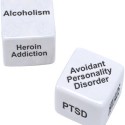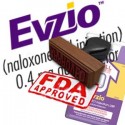Alcoholics' families need support, too
Alcoholics Anonymous is well known as a self-help programme for people who regularly abuse alcohol, now known to be one adult in five.
But the despair, confusion and resentment suffered by the alcoholic is invariably felt by their family too. I know this from both sides of the fence: as the child of a drink-dependent woman, and as a former drinker myself.
Everyone focuses on the alcoholic, but the devastating effect on families, friends and often colleagues is usually overlooked. Recently Maria, 45, whose husband’s drinking threatened to ruin the lives of her and her children, talked to me about the succour that she and many others find in Al-Anon Family Groups, which support people close to those with an alcohol problem.
‘My husband was the love of my life. We married when I was 22. He’d been through a bad experience and because I’m a carer, I loved being needed.
‘I knew he drank a lot – like his father – but I didn’t know anything about alcoholism. After five years of marriage, we had a daughter and he became jealous and possessive; I became aware of how insecure he was.
‘He made my life unbearable: I lost my friends and I was ostracised by my family. When our daughter was a year old, he had a particularly violent outburst and I left
him. But I still loved him and two years later – against many people’s advice – we
were reconciled.
‘We had a baby son but by the time he was a year old, my husband’s drinking had worsened and he became violent again.
‘He was a binge drinker, so sometimes it was lovely between the weeks of hell.
But, finally, he went to the doctor and confessed that he couldn’t control his drinking and his aggressiveness. The GP referred him to an alcohol unit and suggested I went to Al-Anon.
‘I went to my first meeting angry and resentful. But as I listened to the 25 men and women in the room I identified with them so much that I cried the whole way through.
‘In the past, I’d tried church but that hadn’t helped. Family and friends were kind but
no one really understood. I thought the problem was something inside me until
I found Al-Anon.
‘One woman talked about losing the man she’d married. I realised I’d lost myself too – and my self-worth. My whole life revolved round my husband’s drinking patterns and keeping him happy. I was obsessed with this disease but I hadn’t realised what it had done to me.
‘It took several years to accept that the only person I could change was myself. I had to understand that I was not the cause of his drinking, I couldn’t cure or control it. That allowed me to take my hands off the alcoholic and focus on my recovery.
‘Eventually, my husband and I separated after 17 years of marriage. I still grieve for my loss – but it was necessary to protect my children from his violent outbursts.
‘It’s been a long struggle but our relationship is OK now, and I am financially independent. I am grateful for Al-Anon.
‘Being with an alcoholic can make you as out of control as they are. When he thrust his face up to mine and threatened me, I have stood with a fork in my hand, wishing him dead. Without Al-Anon, it would have been me in the loony bin – or jail.’
source: Mail Online

